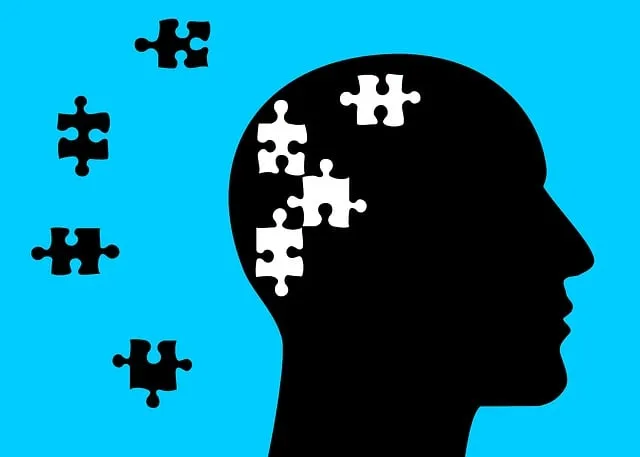In Kaiser Littleton, understanding local mental health needs is key for effective outreach. The community struggles to access quality resources, highlighting a gap in self-esteem and emotional well-being support. Organizers can collaborate with leaders and residents to co-create initiatives like journaling exercises, confidence-building activities, and burnout prevention strategies. By engaging diverse channels and demographics, these programs aim to make mental health services more accessible. Continuous evaluation through feedback, tracking, and data analysis ensures success and guides improvements, ultimately helping residents navigate and utilize Kaiser Littleton's mental health resources effectively.
Community outreach programs play a pivotal role in ensuring equitable access to healthcare, particularly in areas like Kaiser Littleton where identifying gaps in mental health services is crucial. This article guides you through an effective implementation process, from understanding local needs to measuring success. We explore strategies for building trust and engaging the community, designing accessible programs, and using data to continuously improve initiatives aimed at providing mental health support through Kaiser Littleton.
- Understanding the Community's Needs: Identifying Gaps in Mental Health Services in Kaiser Littleton
- Designing an Effective Outreach Strategy: Building Trust and Engaging the Community
- Implementing Programs: Strategies for Providing Accessible Mental Health Support
- Measuring Success and Continuous Improvement: Evaluating the Impact of Outreach Initiatives
Understanding the Community's Needs: Identifying Gaps in Mental Health Services in Kaiser Littleton

In the vibrant community of Kaiser Littleton, understanding the local needs is a pivotal step in implementing effective outreach programs. One pressing area that demands attention is the accessibility and quality of mental health services. Many residents face challenges in finding suitable resources for emotional regulation and inner strength development, highlighting critical gaps in the current offerings. By evaluating these shortcomings, community organizers can design targeted initiatives to bridge these divides.
The availability of support systems aimed at self-esteem improvement and overall mental well-being is essential. Identifying such needs allows for tailored interventions that cater to the unique circumstances of Kaiser Littleton residents. This process involves engaging with local leaders, service providers, and community members to gather insights on existing barriers to accessing mental health care, ensuring that any implemented programs effectively address how to get mental health services through Kaiser Littleton.
Designing an Effective Outreach Strategy: Building Trust and Engaging the Community

Designing an effective outreach strategy is key to connecting with the community and fostering trust. When implementing programs like Kaiser Littleton’s mental health services, building strong community relationships is essential for long-term success. Start by understanding the unique needs and challenges of your target audience. Engage local leaders, organizations, and residents to co-create initiatives that resonate with the community. Tailoring your approach ensures that services like Depression Prevention and Stress Reduction Methods are relevant and accessible.
Utilize various communication channels, such as social media, community events, and partnerships with local businesses, to spread awareness about mental health resources. By combining traditional outreach methods with innovative tactics, you can engage a wider audience. Encourage open dialogue and create safe spaces for individuals to share their experiences, fostering an environment of trust and understanding. This collaborative approach will empower the community to take charge of their mental well-being, ensuring that services like those offered by Kaiser Littleton are embraced and utilized effectively.
Implementing Programs: Strategies for Providing Accessible Mental Health Support

Implementing community outreach programs for mental health support requires a multi-faceted approach to ensure accessibility and effectiveness. One strategy is to offer Mental Wellness Journaling Exercises as a means to engage individuals in self-reflection and coping strategies. By providing written guidance, participants can explore their thoughts and emotions while developing tools for stress management. This low-cost, accessible method allows people to participate at their own pace, fostering a sense of autonomy and empowerment.
Additionally, community programs can incorporate Confidence Boosting activities tailored to diverse demographics. Encouraging open dialogue and sharing success stories can help individuals challenge negative self-perceptions. Integrating Self-Esteem Improvement exercises into these sessions equips participants with valuable skills for navigating daily challenges, enhancing their overall well-being. Through such initiatives, organizations like Kaiser Littleton can extend vital mental health services to a broader audience, fostering healthier and more resilient communities.
Measuring Success and Continuous Improvement: Evaluating the Impact of Outreach Initiatives

Measuring the success of community outreach programs, such as those aimed at increasing access to mental health services through Kaiser Littleton, is crucial for understanding their impact and driving continuous improvement. Organizations can utilize various evaluation methods to assess the effectiveness of their initiatives. This may include collecting feedback from participants, tracking service utilization rates, and measuring changes in knowledge or attitudes related to mental health through surveys or focus groups. By analyzing these data points, healthcare providers can identify what aspects of the program are successful and where adjustments are needed.
For instance, evaluating the success of mental health education programs designed to combat burnout among healthcare providers can highlight effective strategies for stress management and resilience. This knowledge is invaluable for refining Burnout Prevention Strategies, ensuring that resources are allocated to address the most pressing needs within the community. Ultimately, continuous improvement ensures that outreach initiatives remain relevant, engaging, and successful in promoting mental well-being.
Community outreach programs play a pivotal role in ensuring that mental health services, such as those offered by Kaiser Littleton, reach those who need them most. By understanding community needs, designing trust-based strategies, implementing accessible programs, and continuously evaluating their impact, organizations like Kaiser Littleton can effectively bridge the gaps in mental health care. Adopting these practices not only enhances service accessibility but also fosters a more supportive and resilient community overall. To learn more about how to get mental health services through Kaiser Littleton or similar initiatives, explore these strategies and adapt them to meet your local needs.






